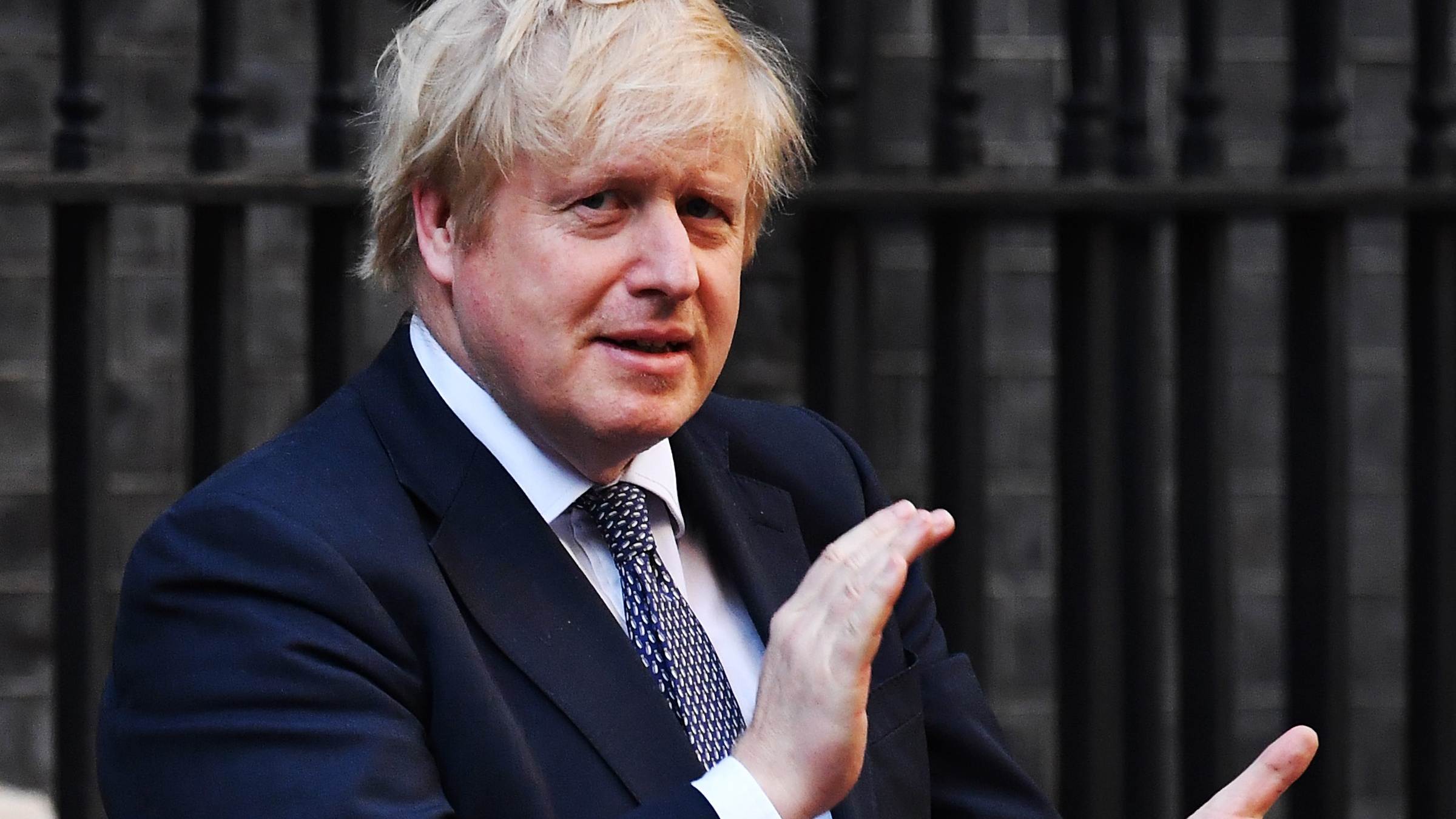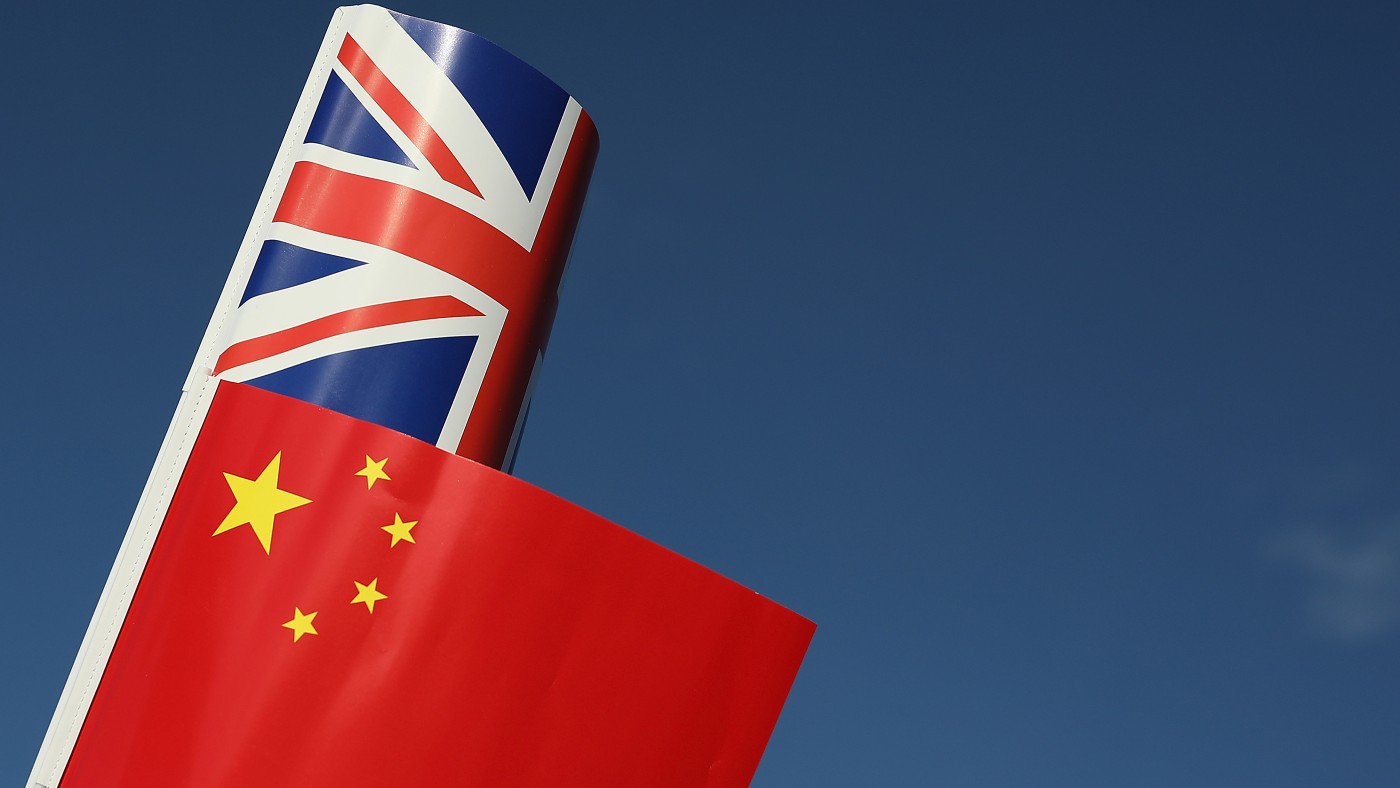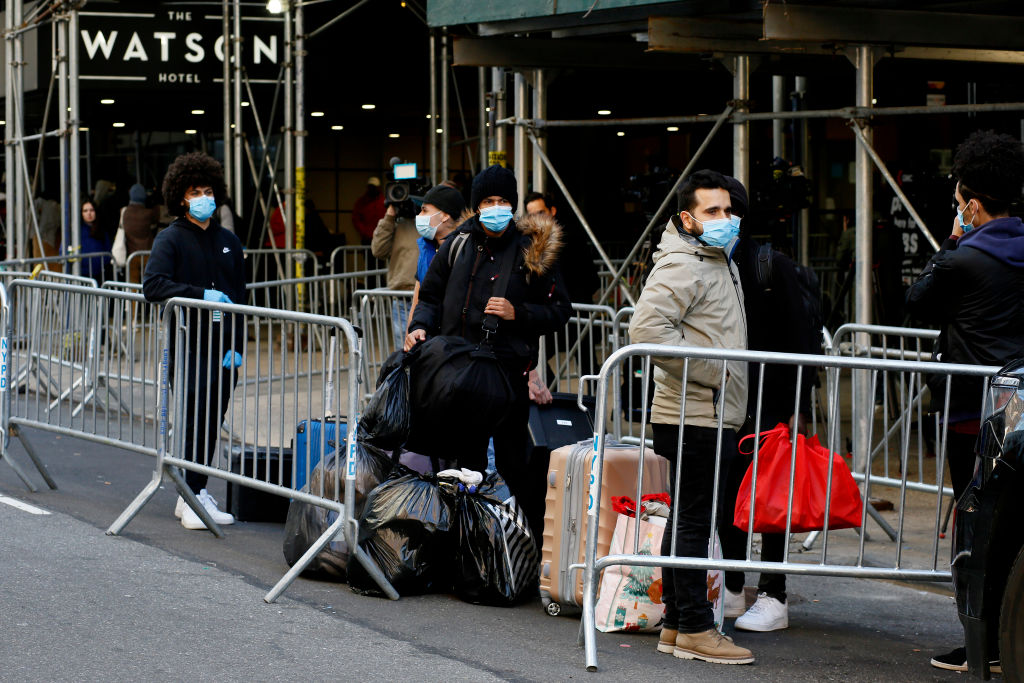Instant Opinion: NHS migrant dispute shows government is both ‘cruel and useless’
Your guide to the best columns and commentary on Friday 22 May

A free daily email with the biggest news stories of the day – and the best features from TheWeek.com
You are now subscribed
Your newsletter sign-up was successful
The Week’s daily round-up highlights the five best opinion pieces from across the British and international media, with excerpts from each.
1. Jonathan Freedland in The Guardian
on the government’s U-turn on the migrant healthcare fee
The Week
Escape your echo chamber. Get the facts behind the news, plus analysis from multiple perspectives.

Sign up for The Week's Free Newsletters
From our morning news briefing to a weekly Good News Newsletter, get the best of The Week delivered directly to your inbox.
From our morning news briefing to a weekly Good News Newsletter, get the best of The Week delivered directly to your inbox.
The NHS surcharge debacle reveals a government both cruel and useless
“Voters will occasionally forgive a government they deem heartless, if they reckon it has the steel to get the job done. They might even, though rarely, forgive a government they deem incompetent, if they believe its heart is in the right place. What they will never forgive is a government that is both uncaring and useless. And yet that is precisely the judgment that now hovers over Boris Johnson and the administration he leads. Johnson had surely intuited as much when he performed his rubber-burning U-turn late on Thursday, ditching his previous insistence, reiterated 24 hours earlier, that foreign-born NHS and care workers must pay an extra fee for the privilege of using a service that could not function without them. The notion of such a surcharge reeked of meanness of spirit, the demand that it increase from £400 to £624 stank. The hypocrisy was particularly pungent: even Scrooge didn’t clap on the doorstep for those from whom he was squeezing every penny.”
2. Ed Conway, economics editor of Sky News, in The Times
on Britain’s shift to a European, not US, economy
A free daily email with the biggest news stories of the day – and the best features from TheWeek.com
Is Britain falling in love with big state again?
“Only a few months ago the fashionable theory was that having left the EU Britain would stake out a new identity as a low-tax, low-regulation haven a bit like the Asian city state. Except that in the face of Covid-19 we have done the opposite. Britain, it turns out, is not Singapore - and not just when it comes to containing the virus. We have adopted economic policies that have typically been considered German and French and implemented them with gusto. The state is now paying the wages of ten million workers, offering guaranteed loans to small businesses, investing in start-ups and helping to finance multinationals... Government taking permanent stakes in businesses? It doesn’t sound very British, but then it turns out the British economic model doesn’t necessarily fit the conventional wisdom. The state is spending more and taxing more than for generations, yet the British people seem quite happy about it. Having left the EU, we are in some senses drifting closer to Europe rather than further away.”
3. Angela Epstein in The Daily Telegraph
on the delayed decision to take travel precautions
The UK’s travel quarantine plan is too little, too late
“For the incarcerated mum trying to home school, the pensioner facing another dreary day in self-isolation or the business choking to survive, the frustrating sight of a bustling Heathrow arrivals hall was a slap in the face for their own dedicated capitulation to the rules. So why introduce quarantine now? Understandably, there will be those who simply don’t have the cash to even consider a foreign break this summer. But I would wager that even the most hard-pressed would try to scramble funding together to attempt a getaway. After all now, more than ever, holidays aren’t just an indulgence. For many they could be a life-saver. The price of lockdown has been incalculable for the nation’s mental health. The prospect of planning an escape to somewhere warmer is vital to help drive away the black dog and bleak despair so many have succumbed to over the past few months... The British public shouldn’t have to pay the price for a dithering administration which failed to act when opportunity presented itself. Going away this year? Might be a question those with long memories may ask the Government on polling day.”
–––––––––––––––––––––––––––––––For a round-up of the most important stories from around the world - and a concise, refreshing and balanced take on the week’s news agenda - try The Week magazine. Start your trial subscription today –––––––––––––––––––––––––––––––
4. Tom Mitchell in the Financial Times
on a dictator forced to play the role of a distractor
Xi distracts from own failings with Hong Kong security law
“In a single stroke on Thursday night, Mr Xi essentially asked the people of China: ‘Are you with me or are you with Hong Kong’s protesters and Mr Trump?’ He knew how most people would answer that simple question before he asked it. If China had a real parliament, some delegates might now be asking Mr Xi some difficult questions. Would not China’s economic prospects look much better if the president had not risked a new cycle of mass protests in Hong Kong and further deterioration in relations with the US and let the focus of this year’s parliament rest firmly on Mr Li and the state council’s economic recovery plans? The NPC is not a real parliament, so Mr Xi need not worry about that. Its unintentional but most enduring image this year will be of the president, sitting without a mask, surrounded by thousands of delegates with their mouths covered.”
5. Sonia Falerio in The New York Times
on the disturbing trend in the UK’s Covid-19 death statistics
Britain’s Ethnic Minorities Are Being Left for Dead
“The pandemic may affect us all, but its effects are not equal. In Britain, which has the highest death toll from the coronavirus after the United States, they are unfolding to reveal a gross inequality. As in America, ethnic minorities — exposed at work and subject to social neglect - are disproportionately falling victim. And the government is doing little to stop it. The ethnic divides in the data are stark. In England and Wales, according to a recent report, black people are nearly twice as likely to die of the coronavirus as white people, while Indians, Bangladeshis and Pakistanis are also at a significantly higher risk. Thirty-three percent of critically ill coronavirus patients are from ethnic minorities, another study found. Given that ethnic minorities make up only 19.5 percent of the population and are on average younger than white Britons, the figures are damning. But not necessarily surprising. As we know, underprivileged people are much more likely to contract the virus. And in Britain, people of color have, on average, a lower standard of living than whites. The pandemic’s disproportionate toll was foreseeable. The government could have predicted, and perhaps prevented, many deaths. It did not.”
-
 Political cartoons for February 14
Political cartoons for February 14Cartoons Saturday's political cartoons include a Valentine's grift, Hillary on the hook, and more
-
 Tourangelle-style pork with prunes recipe
Tourangelle-style pork with prunes recipeThe Week Recommends This traditional, rustic dish is a French classic
-
 The Epstein files: glimpses of a deeply disturbing world
The Epstein files: glimpses of a deeply disturbing worldIn the Spotlight Trove of released documents paint a picture of depravity and privilege in which men hold the cards, and women are powerless or peripheral
-
 ‘Irony’ as Zoom calls staff back to office
‘Irony’ as Zoom calls staff back to officefeature And other stories from the stranger side of life
-
 Ascension island: UK could send small boats arrivals to remote Atlantic territory
Ascension island: UK could send small boats arrivals to remote Atlantic territorySpeed Read UK government weighs up alternatives if Rwanda scheme is ruled unlawful by Supreme Court
-
 Justice Department sues Texas over Mexico border buoys
Justice Department sues Texas over Mexico border buoysSpeed Read
-
 China’s ‘breathtaking’ infiltration of UK economy: an existential threat?
China’s ‘breathtaking’ infiltration of UK economy: an existential threat?Talking Point New report suggests Beijing is exerting political and economic influence on Westminster
-
 The U.S. veterinarian shortage crisis
The U.S. veterinarian shortage crisisSpeed Read With an anticipated shortage of 15,000 vets by 2030, it will be harder to get care for pets
-
 Captain Tom charity closes to donations amid daughter’s pool row
Captain Tom charity closes to donations amid daughter’s pool rowSpeed Read Hannah Ingram-Moore to appeal council order to demolish spa complex at her home
-
 Company teaches mask-wearers to smile again
Company teaches mask-wearers to smile againfeature And other stories from the stranger side of life
-
 New York City weakens right-to-shelter rules ahead of expected migrant surge
New York City weakens right-to-shelter rules ahead of expected migrant surgeSpeed Read